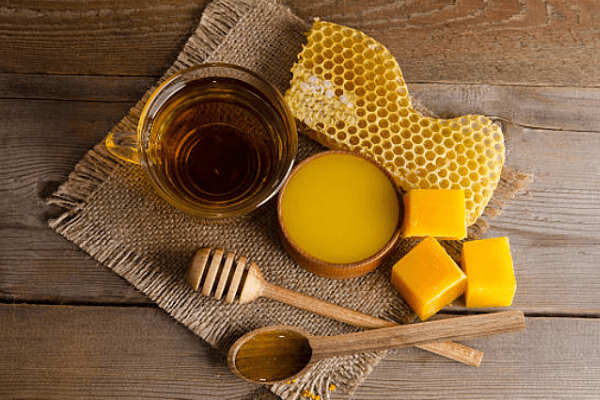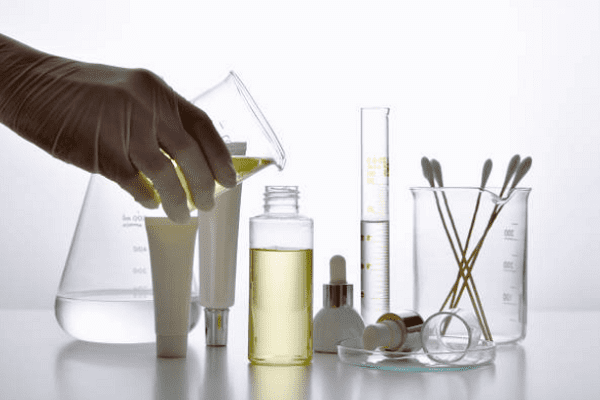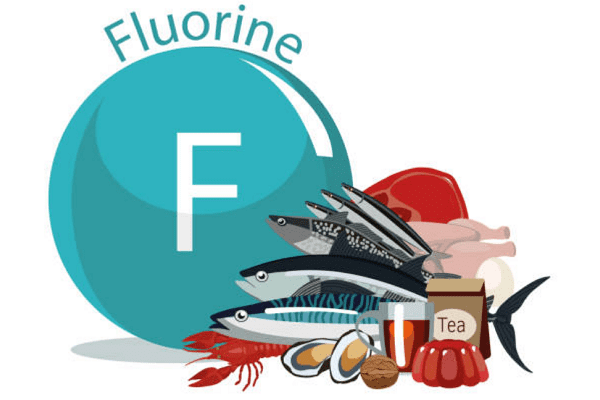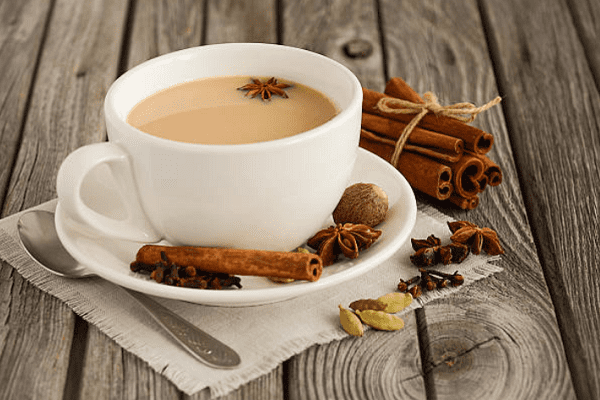Phytotherapy >>>> Teas with medicinal properties
Teas with medicinal properties.
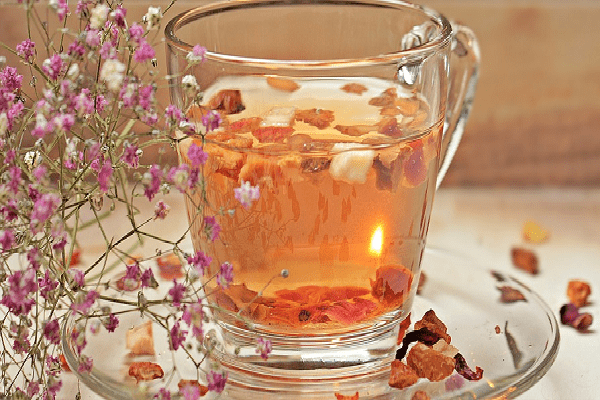
The tradition of drinking tea has developed over the centuries and has found many admirers, since compared to plain water, tea is still a noble drink that has many flavors, and, therefore, meets various preferences.
The aromas of plants made it possible to turn the intake of liquid, so useful for the body, into entertainment.
Today, tea drinking has not lost its appeal, and for most people, tea is the preferred drink. But the findings of ancient times have not been forgotten, and exotic plants are increasingly involved in the preparation of tea: mushrooms, algae, rare species of flowers and plant fruits.
Tea is the universal name for a drink obtained by infusing (brewing) herbal ingredients. But the tea got its name from the Tea tree, the leaves of which initially gained popularity, as they had a tonic and antiseptic effect.
Modern varieties of tea made from flowers, fruits, leaves or seeds of plants may not have any outstanding healing effect, other than aromatic or antiseptic (due to tannins contained in different quantities in all plants), but there is a group of plants from which the tea made has medicinal properties.
All teas absolutely have a certain effect on the state of the human body due to the fact that when the ingredients are infused into an aqueous solution, biologically active substances are released, many of which are not so harmless, but in small doses they can insignificantly affect health. Nevertheless, one should expect any results from taking tea, and be well aware of the possibilities for improving health in one or another tea drink.
Flower teas - medicinal properties.
Flower teas are popular precisely for their aromas. Petals and inflorescences are the most noble components for tea, containing a variety of vitamins and minerals, which are useful for accumulated fatigue, bad mood, weakness, but not for insomnia, as aromas can irritate and excite nerve endings, creating additional problems with sleep.
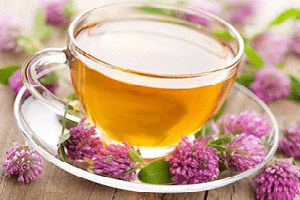
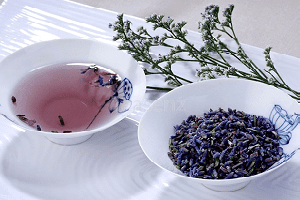
Tea with Clover flowers is a rare drink in terms of frequency of use, since not everyone is familiar with the medicinal properties of meadow clover. Clover flowers are rich in salicylic and coumaric acids, vitamins C and E, carotene, essential oils. Clover tea is an anti-inflammatory and expectorant agent, has anti-toxic and anti-diabetic properties. Clover flower tea is a fortified drink and at the same time an antiseptic, popular for inflammatory skin diseases.
Tea with medicinal lavender flowers is a soothing drink that relieves muscle and vascular spasms, lowers blood pressure and activates the immune system. The many advantages of lavender tea include its high antiseptic effect. Lavender flowers contain essential oils that have an irritating effect on the intestines, which in turn is useful for low acidity and problems with a lack of digestive enzymes (has a choleretic effect). But lavender tea is not good for people with reflux and gastritis problems.
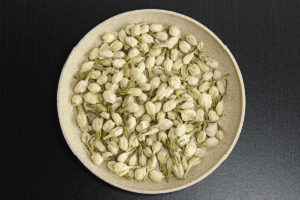
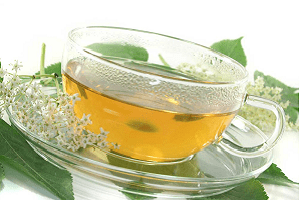
Jasmine Flower Tea is a highly flavored beverage that does not require additional sweeteners. Improves overall well-being, relieves nervous tension, helps the body replenish vitamin stores. Jasmine tea is brewed from green leafy teas with Jasmine flowers. But it is acceptable to prepare such tea and only from Jasmine flowers, without mixing with other components.
St. John's wort flower tea has a specific taste, but this does not detract from its medicinal properties. St. John's wort tea is one hundred percent antiseptic and anti-inflammatory drink that will put in order the gastrointestinal tract, treating ulcers, erosion and other injuries of the gastrointestinal mucosa. But they do not drink tea with St. John's wort before going out into the sun, since the plant St. John's wort is a photosensitizer (increases sensitivity to light), which can provoke sunburn (irritation) on the skin and mucous membranes.
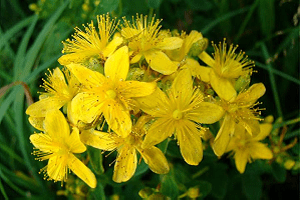
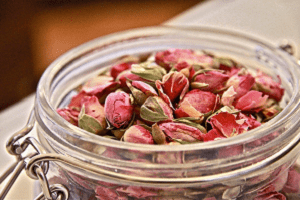
Elderberry flower tea is a very popular drink among health-conscious people. Having prepared tea from Elderberry flowers and Chamomile flowers, you can get a drink that will compete with medicinal teas with Raspberries, since it has not only general strengthening properties, but also has a beneficial effect on the state of the bronchial tree, has an expectorant effect, anti-inflammatory and antiseptic effect. Elderberry tea can be sweetened with honey. Elderberry flower tea is a good diaphoretic and diuretic, as well as a stimulant of cardiovascular activity.
Tea made from tea rose petals is a drink for entertainment, in addition to its aromatic properties, tea made from rose has a relaxing effect and at the same time vitaminizes the body. It is in the petals of the flowering plants of the Rose that the supply of vitamins is concentrated, which, during fruit formation, will pass into the fruit pulp. The excellent aroma properties of Rose tea provide an antiseptic and soothing effect.
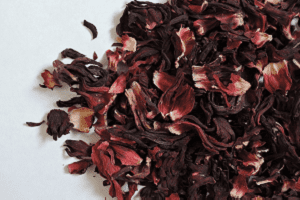
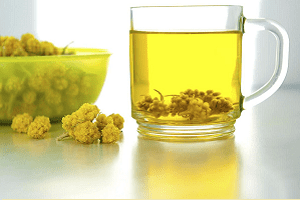
The tea with Sudanese rose (Hibiscus, Rosella) flowers is known as Hibiscus. This is a tea with aristocratic taste and interesting properties. Hibiscus has good taste both hot and cold, which allows it to be used as a soft drink. In addition to the immunostimulating effect, Hibiscus affects the tone of the vascular system, is an active choleretic agent. Hibiscus flowers contain a lot of pectin, which is good for the digestive tract, but at the same time, the Hibiscus drink, rich in natural acids, is harmful for diseases such as gastritis, stomach and intestinal ulcers.
Tea with flowers of Immortelle (Tibetan Chrysanthemum) is brewed and drunk when it is necessary to improve health in the area of liver disorders (choleretic), kidneys (anti-inflammatory and diuretic). Helichrysum tea is an active antiseptic, which is not very useful for bowel diseases - dysbiosis, dysbacteriosis.
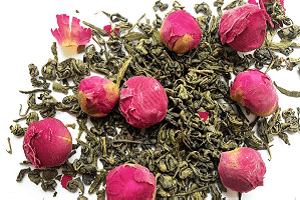
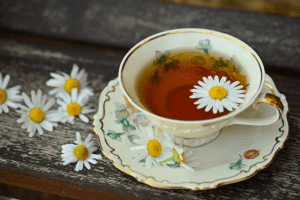
Peony flower tea is an antidepressant and sedative, helps to relieve nervous tension, relax muscle tissue (relaxation), is useful for sleep disorders and excessive excitability of the nervous system.
Plants that are convenient for making tea include Pharmacy Chamomile, whose inflorescences, in addition to pleasant taste sensations, have a soothing, anti-inflammatory and antiseptic effect. Chamomile tea is appropriate after a hard day's work and at night. Chamomile tea is a support for ulcers, irritations of the mucous layer of the intestines and stomach, as it has a wound-healing effect, promotes tissue regeneration, and relieves symptoms of inflammation. Chamomile tea is not drunk daily, but it is a tea drink that is appropriate once a week, as a prevention of stress and intestinal inflammation. In addition, Chamomile tea is a good mouthwash, as it inhibits the growth of pathogenic microflora and prevents diseases of the oral mucosa, dental caries.
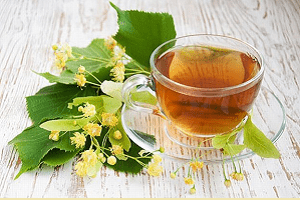
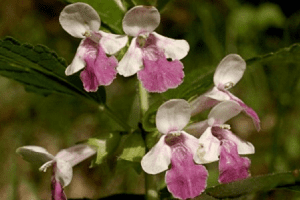
Linden flower tea is very popular due to the persistent aroma of the plant flowers, as well as due to its medicinal qualities as a diaphoretic, digestive stimulant, immunostimulant. Linden tea (a mixture of flowers and leaves) will come in handy for general malaise, loss of strength, and digestive disorders.
Melissa is a favorite plant for tea connoisseurs, as its addition to any tea as an ingredient calms the nervous system, causes a slight hypnotic effect, and relaxes the body after heavy physical and mental stress. Melissa tea is made for people suffering from insomnia and excessive agitation and nervousness.
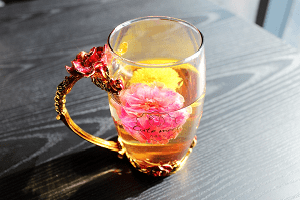
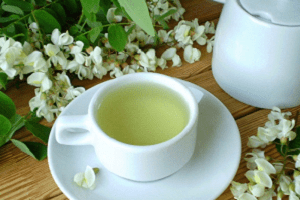
Tea with Yellow Chrysanthemum flowers (Ju Hua - Snow Chrysanthemum) is a popular Chinese drink where this type of Chrysanthemum is grown on plantations. Yellow Chrysanthemum flowers are brewed as a stand-alone ingredient or added to Green Tea leaves. Ju Hua flower tea is a fragrant vitamin and mineral remedy, fortifying and at the same time refreshing and toning. Two or three flowers are added to one cup of tea, since Chrysanthemum flowers have an expressive taste and can drown out other tea ingredients.
Tea from the flowers of Acacia white is a rare, but very useful drink if there are problems with inflammation of the mucous membranes of the respiratory tract, as well as inflammatory diseases of the urinary system. Acacia white flowers, brewed in tea as a standalone ingredient or added to green tea leaves, is a good expectorant and anti-inflammatory agent. The tea uses unblown buds of Acacia white, which concentrate many useful substances, including sugars, vitamins, minerals and the alkaloid Robinin, which is responsible for the medicinal properties of Acacia tea. Tea from White Acacia is not a drink for every day, but it is worthy of attention, if you have colds, you need an anti-inflammatory and diuretic.

Read

Read






